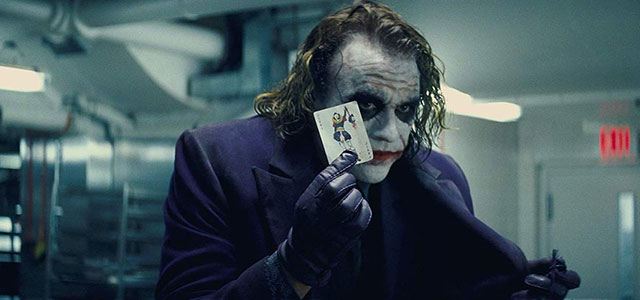
We're counting down to the release of Tenet by looking back at Christopher Nolan's movies in order.
The director's latest project is a typically secretive affair, dealing in armageddon, time inversion and much more besides. John David Washington and Robert Pattinson lead an all-star cast including Kenneth Branagh and Michael Caine.
This week, we're examining Nolan's sixth feature film: The Dark Knight.
What is the story of The Dark Knight?
Some years after the events of Batman Begins, millionaire turned superhero crime-fighter Bruce Wayne (Christian Bale) is well-established as Batman. He's been crusading to rid Gotham City's streets of criminals, including its feared mobsters, but copycats are on the rise. Wayne thinks that hope may be on the horizon in the form of fearless, virtuous district attorney Harvey Dent (Aaron Eckhart), a hero who doesn't need to lurk behind a mask.
However, Batman and Dent's efforts are suddenly thwarted by the arrival of the Joker (Heath Ledger). A self-described "agent of chaos", the Joker realises that the most profound kind of anarchic damage is to turn Gotham's inhabitants against one another. In getting Goham's fearful mob bosses on his side, the Joker begins to consolidate his influence, plunging Batman, Dent and loyal ally Jim Gordon (Gary Oldman) into a desperate battle for the city's soul.
How was The Dark Knight made?
Dark in name and in nature, Christopher Nolan's searing follow-up to Batman Begins left audiences and critics reeling with its onslaught of psychologically-motivated theatrics. Back in 2005, Nolan had crafted, arguably, the first properly grown-up Batman movie – not a surprise given the pantomime nonsense of Joel Schumacher's earlier films, although there's plenty to commend Tim Burton's two efforts with Michael Keaton.
The Dark Knight, however, elevated Begins' broodiness to a new level, transcending the label of mere comic book movie to emerge as a tortured new beast in its own right. In truth, The Dark Knight resembles a large-scale crime movie that just so happens to have a superhero at its centre. Nolan has always acknowledged the gritty influence of Michael Mann's Heat on his interpretation of Gotham, and nowhere is that more apparent than during The Dark Knight's opening bank robbery sequence.
In a first for Nolan, the sequence was shot using IMAX cameras, and it sets out his stall in terms of the movie's look, tone and thematic approach. This version of Gotham is a deceptively utilitarian, chillingly believable one of glass-fronted buildings and shadowy alleyways, a direct contrast to the exaggerated perspectives and often snow-covered landscapes of Burton's interpretation. From the very first moment where we see a pane of glass blown out from a building, we know we're in for a very different kind of Batman experience: one that exposes the fragility of so-called 'ordinary' existence. Co-habitation and community spirit is but a surface waiting to splinter and crack, which is where the Joker comes in.
By the time The Dark Knight was released in July 2008, anticipation over the late Heath Ledger's role had reached ear-splitting volume. The actor's death in January of that year added to the fearsome mystique of the character, which had barely been teased in full during December 2007's debut trailer. That preview acted as our first look at the cracked, peeling make-up, and it also debuted that Jimmy Stewart-gone-to-seed voice. Little wonder that come summer 2008, global audiences were hungry for the end result. The savvy viral marketing campaign was another landmark that spiked interest: various slogans announcing 'I believe in Harvey Dent' were systemically graffitied and defaced, anticipating the chilling relationship between the two characters in the movie itself.
Ledger's iteration of the classic Bill Finger, Bob Kane and Jerry Robinson character carved out a distinctly different niche from the pantomime camp of Cesar Romero and Jack Nicholson. As evidenced by Ledger's diaries, maintained during several weeks of isolation in a hotel where he established the character, this Joker is not just a man but a symbolic presentation of pure chaos. Nolan's movie occupies the troubled post-9/11 mindset that haunted so many other blockbusters of the period (Steven Spielberg's War of the Worlds included), and Ledger's Joker follows suit. The likes of electrifying, booby-trapped hand buzzers were no longer enough – this Joker is an insidious, insurgent threat whose ability to expose weakness in the most virtuous of individuals makes him a terrifying enemy.
Such concerns are at the heart of the script by Nolan and his brother Jonathan. The latter had devised the short story 'Memento Mori' that inspired Christopher Nolan's celebrated non-linear thriller Memento, and the two brothers had long harboured an interest in themes of obsession and time. These ideas not only pre-occupied Guy Pearce's short-term memory sufferer in Memento, but also Al Pacino's tortured cop in Insomnia, and the warring 19th-century magicians in The Prestige, played by Hugh Jackman and Christian Bale.
Both Nolans also famously applied this intricate, commendably grounded approach to the Caped Crusader in Batman Begins, and The Dark Knight showcases a maturation, possibly a peak, in the siblings' writing. Both Nolan brothers made the decision to foreground the Joker after Warner Bros confirmed the news of a Batman Begins sequel in July 2006. Various comic book sources were cited, including the oft-referenced 'The Killing Joke'. However, at the same time, Nolan aimed to discard the notion of a definitive backstory for the character, instead making him a chillingly nebulous villain who adjusts his tortured background depending on who he's talking to.
"To me, the Joker is an absolute," Nolan explained. "There are no shades of gray to him – maybe shades of purple. He's unbelievably dark. He bursts in just as he did in the comics." In fact, the feared villain's appearance is a direct continuation of Batman Begins' final scene, where the noble Jim Gordon warns Batman of the imminent war of "escalation".
Nolan expanded on this theme further: "As we looked through the comics, there was this fascinating idea that Batman's presence in Gotham actually attracts criminals to Gotham, [it] attracts lunacy. When you're dealing with questionable notions like people taking the law into their own hands, you have to really ask, where does that lead? That's what makes the character so dark, because he expresses a vengeful desire."
There's no denying that Ledger blazes a trail through the movie: not a comic book buffoon but a terrorist who belies his lack of physical bulk with a preternaturally eerie awareness of how society operates. As he later says to Batman in the deeply unnerving and engrossing interrogation scene: "When the chips are down, these 'civilised' people will eat each other." Ledger takes a character with the potential to be ripe and hammy and brings him, terrifyingly, down to Earth, a reflection of Nolan's wider philosophy in making the film.
Little wonder that Harvey Dent actor Aaron Eckhart recalled being awed by Ledger's performance during rehearsals. "Chris looked at me and he said, 'Heath is doing something special.' And we all felt that way... When you have Gary Oldman, who's one of our greatest actors, and he's in awe of what Heath was doing, it showed what a performance Heath was giving." Alfred actor Michael Caine would later echo those sentiments, saying that during his first scene with Ledger (where the Joker crashes Bruce Wayne's party), he was so scared, he forgot all his lines.
Dent is, ultimately, the real tragic figure in The Dark Knight, a feeling accentuated by the fact that his hideous fall from grace is encapsulated within one film. Nolan's decision has been met with criticism in some quarters, with many alleging that Eckhart's portrayal deserved a slow-burn reveal over several films. Nevertheless, there is sledgehammer impact in watching the crusading Dent hopelessly transform from Bruce Wayne's new hope into a horribly scarred reflection of chance, duality made flesh. Eckhart's criminally underrated performance invests us fully in the character's downfall, even if the timeframe seems somewhat compressed.
As if it couldn't be more obvious, Nolan's outlook is far removed from the world of bat nipples, puns and latex. The Dark Knight would ultimately break new ground in sober portrayals of long-standing pop culture icons. The later likes of Logan, which re-imagined the quest of Hugh Jackman's title character as a blood-soaked Western odyssey, owed everything to Nolan's pioneering approach. It also helps that Nolan's staging of the action sequences is much more fluidly and coherently handled than in Batman Begins, aided by a vastly bigger budget ($185 million) that turns Chicago, standing in for Gotham, into a playground around which the nefarious Joker can rampage.
The movie was shot over several weeks in the so-called Windy City, with the UK's Pinewood Studios standing in for the interior shots. The movie is handsomely lensed by Nolan's regular collaborator Wally Pfister, who finds untold variations in the conflicting hues of blue, dark and grey. The overarching feel is one of pragmatic melancholy, establishing the tactile feel of a world we can believe in, before it all gets blown to hell. Nolan's characteristic aversion to CGI helps enormously here: the practical effects on the likes of the Batpod, not to mention during pivotal sequences like the hospital explosion, strike a physical note in an era where visual effects have been allowed to run out of control.
Hans Zimmer and James Newton Howard's score is in lockstep with Nolan's boldly downbeat approach. The former composed the material for the Joker, comprised not so much of themes as angry impressions, which resemble nothing less than buzzing hornets. Howard, meanwhile, tackled the more emotive, organic material for Dent, steadily transforming his noble theme into a chilling, churning, despairing piece for cello and double-bass during the horrifying final conflict.
One person that hasn't been cited in all this is Christian Bale. The actor would later admit, after the release of 2012's The Dark Knight Rises, that he hadn't quite nailed the essence of the character. Yet for all the ridiculous basso-profundo of the Batman voice (possibly the film's only true misstep), Bale is pivotal to the believability of the film. The scene in which Batman interrogates the Joker is perhaps Bale's best: despite being concealed beneath the cowl, somehow he is able to convey the dawning realisation of the Joker's piercing philosophy. Without saying anything, we realise how this Batman has finally met his immovable object: the Joker, for better or worse, is right in what he says.
It's a revelation that flips our perceptions of good and evil, righteous and ruthless, leading to a morally complicated conclusion that blows all simplistic blockbuster climaxes out of the water. By once again trusting in the intelligence of the audience, not to mention their willingness to be plunged into a chilly, dark world for the best part of two and a half hours, Nolan affirms his position as a purveyor of smart, handsome-looking entertainment.
How was The Dark Knight received?
The Dark Knight ushered in a new dawn for comic book movies. Interestingly, it was released just two months after the first Iron Man movie, which initiated the Marvel Cinematic Universe (MCU) and set its own kind of standard for breezy, audience-friendly capers. The Dark Knight, however, was a completely different beast, blowing away pre-conceptions that the comic book template was not to be taken seriously.
Like the earlier Batman Begins, this was a tortured, electrifying character study masquerading as audience-friendly spectacle. Like Begins, the movie smuggled in themes of anarchy, identity and duality within the framework of a DC character familiar to millions of people around the world. However, The Dark Knight elevated and darkened those themes with noteworthy ambition, daring audiences to go down the rabbit hole in possibly the grimmest comic book movie ever conceived.
The movie ultimately hit the jackpot, grossing more than $1 billion worldwide and also achieving rare critical distinction. It was a sign of how Nolan's film had broken through, the usually snobby critics electrified by the film's emphasis on human impulses above spangly costumes.
The late Roger Ebert noted this: "Batman isn’t a comic book anymore. Christopher Nolan’s The Dark Knight is a haunted film that leaps beyond its origins and becomes an engrossing tragedy. It creates characters we come to care about. That’s because of the performances, because of the direction, because of the writing, and because of the superlative technical quality of the entire production."
Rolling Stone's Pete Travers was similarly enthusiastic: "It’s enough to marvel at the way Nolan — a world-class filmmaker, be it Memento, Insomnia or The Prestige — brings pop escapism whisper-close to enduring art. It’s enough to watch Bale chillingly render Batman as a lost warrior, evoking Al Pacino in The Godfather II in his delusion and desolation. It’s enough to see Ledger conjure up the anarchy of the Sex Pistols and A Clockwork Orange as he creates a Joker for the ages. Go ahead, bitch about the movie being too long, at two and a half hours, for short attention spans (it is), too somber for the Hulk crowd (it is), too smart for its own good (it isn’t). The haunting and visionary Dark Knight soars on the wings of untamed imagination. It’s full of surprises you don’t see coming. And just try to get it out of your dreams."
Given the hype surrounding Heath Ledger's performance, it was perhaps little surprise that he was guided to a posthumous Oscar win for Best Supporting Actor. (He was the first to receive such a distinction since Peter Finch and Network in 1977.) Yet it was also a clear sign of the integrity and conviction he had ploughed into the role: it's surely one of the most impressive performances ever undertaken by a young actor, which makes us lament we won't see anything else from him.
Widespread controversy and anger greeted the rest of The Dark Knight's Oscar nominations, namely that the movie failed to receive recognition in the Best Picture and Director categories. What more did a film have to do in order to win the Academy over? After all, audiences and critics were largely bowled over. In its own way, The Dark Knight was a watershed moment in the Academy's interpretation of comic book cinema.
Left reeling by the vitriol that greeted The Dark Knight's omissions, Oscar voters steadily turned their attention towards rewarding movies in this field. In 2019, Marvel's Black Panther made several historic Oscar firsts, and before that, Logan was the first-ever comic book movie to be nominated for Best Adapted Screenplay. Amazingly, however, it would be another 10 years before Nolan received his first nomination for Best Director, for Dunkirk.
In truth, The Dark Knight redefined an entire genre and set Nolan on course to make escalatingly ambitious movies. With box office, awards recognition and reviews on his side, Nolan secured even greater trust with distributor Warner Bros, eking out an enviable position. He's subsequently become the rare filmmaker who is entrusted to paint personal, challenging stories on an epic $200 million canvas. It's thanks to the likes of The Dark Knight that this year's Tenet has emerged, unmolested, as a product of Nolan's singularly fertile imagination.
What was the next Christopher Nolan movie?
Inception was Nolan's next movie, starring Leonardo DiCaprio.
Tenet is scheduled for release on 26th August 2020. What is your favourite Christopher Nolan movie? Let us know @Cineworld.

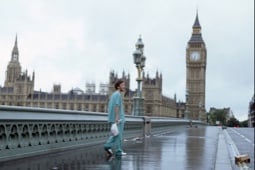
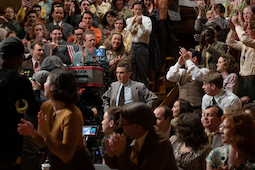
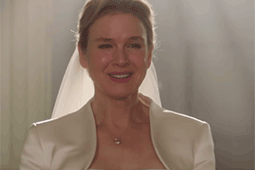
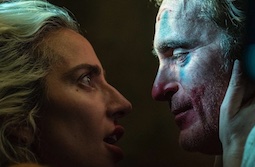
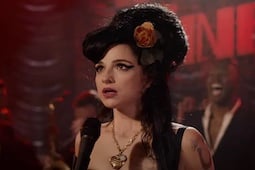
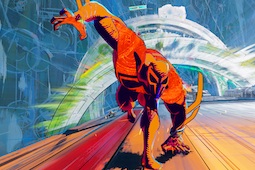
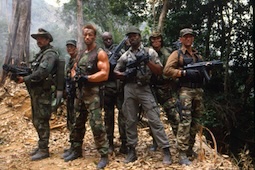
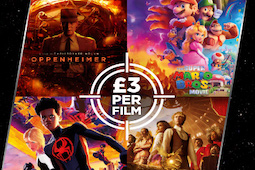

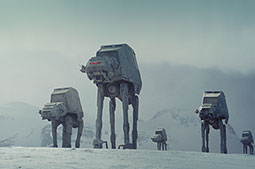
.jpg)
.jpg)

.jpg)
.png)



